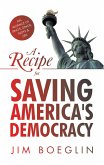Have you ever wondered where your Margherita, Melba, Suzette or Eggs Benedict come from? This is the fantastic history and origins of your favourite foods and recipe names.
Food is just as entitled to a proper history as castles, wars, kings, queens, art, literature and the bubonic plague. But the book world is now so saturated by celebrity chefs trying to show the working man how to rub garlic on a ciabatta or break lime leaves over a piece of raw fish that we've lost sight of the really interesting stories behind the recipes we all know and love. And, whilst I don't ride around London on a scooter with my mates or swear at incompetent sous chefs for a living, nor do I know one end of a pork loin from its elbow, I do love history and I do love food. And the history behind our favourite dishes is fascinating, surprising and overlooked - from the Buddha's obsession with porridge to the dying playwright Moliere dosing himself with Parmesan rather than medicine (it didn't work) and so I wanted to find out more.
But rather than just retelling the tales of how civilizations developed cooking techniques millennia ago, I wanted to know the stories about the people behind the food we eat every day. For example, who was Marguerita, and why was the world's most famous pizza named after her? And while everybody loves crêpes Suzette but do they know that Suzette was the mistress of an earlier hard-living Prince of Wales and how the dish was named after her? And what about the notorious Earl of Sandwich and how he came up with our favourite snack to avoid losing at cards? We've all enjoyed Peach Melba at some point, or spread some butter on a piece of Melba Toast, so wouldn't it be a great idea to tell the story of the megalomaniac singer, Dame Nellie Melba, for whom these dishes were created.
And once I'd started my research, the discoveries started flooding in. Why do we call our favourite Greek lamb dish after a bunch of thieving nomads (Kleftiko)? Who were the Tartar warriors and why do we name raw steak after them? Or what about all those cakes and buns, Eccles, Bakewell, Lamington, Battenberg, Garibaldi and the Anzacs. There are the salads in the shape of Caesar and Cobb and the fish and soups have plenty of history of their own. And don't forget the sauces such as Béarnaise, Mayonnaise, the one from the House of Parliament and that one from the Thousand Islands? There are all in here, and many more. Pavlova, for example. We may all know about the Russian ballerina and do we know about the century old argument between the Australians and New Zealanders over who invented it. Well, that particular question is answered here.
So, dear reader, a cook book this is not. But while the chefs of the world will learn little about recipes here, they might enjoy the stories of how their everyday tools of the trade, salt and pepper, once transformed the world and how some of the other great events in history put whatever it is you are having for dinner tonight upon your plates.
There wasn't room for every dish I wanted to cover in this edition - but you never know there might always be a second sitting…
Dieser Download kann aus rechtlichen Gründen nur mit Rechnungsadresse in A, B, CY, CZ, D, DK, EW, E, FIN, F, GR, H, IRL, I, LT, L, LR, M, NL, PL, P, R, S, SLO, SK ausgeliefert werden.









